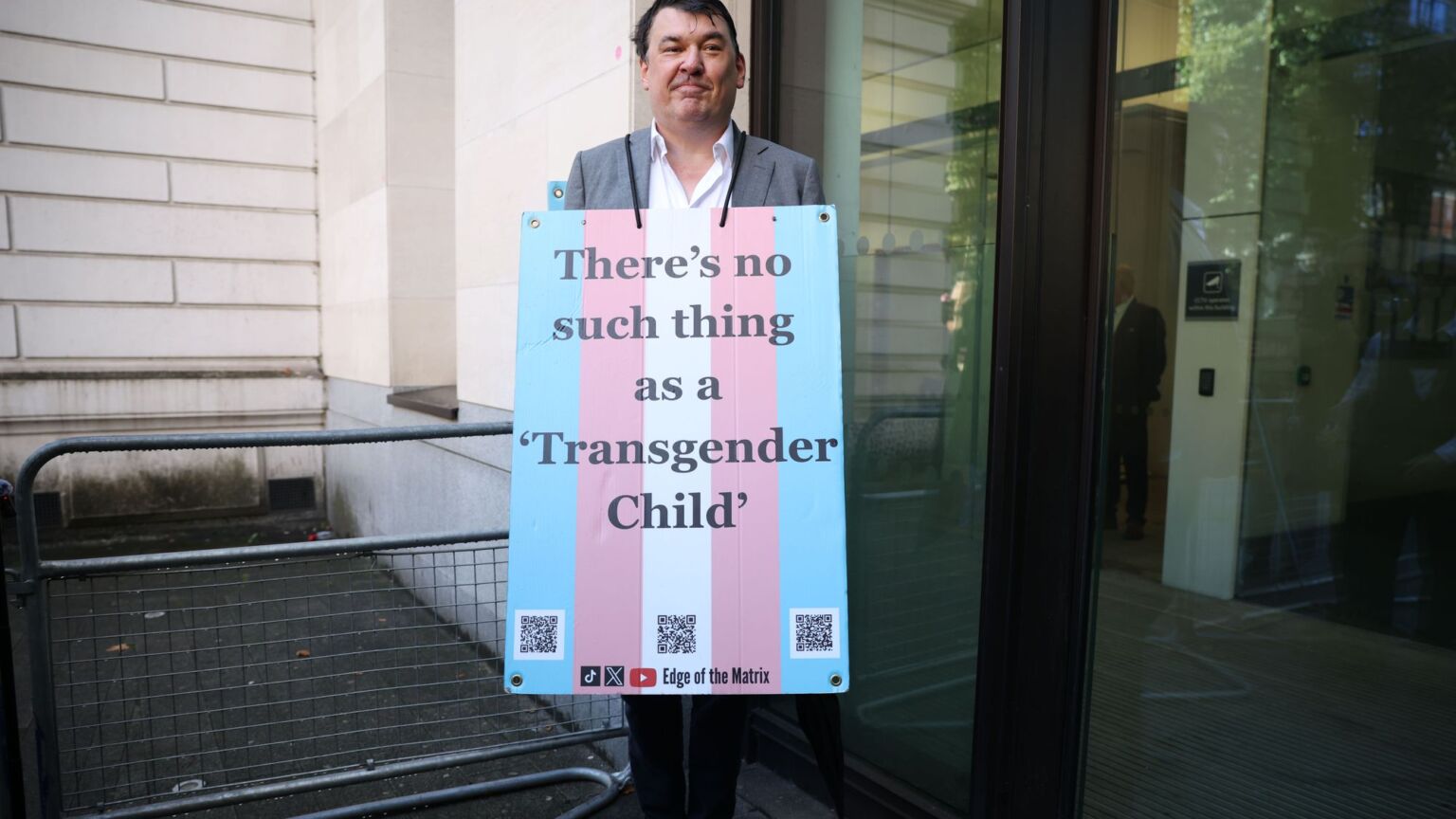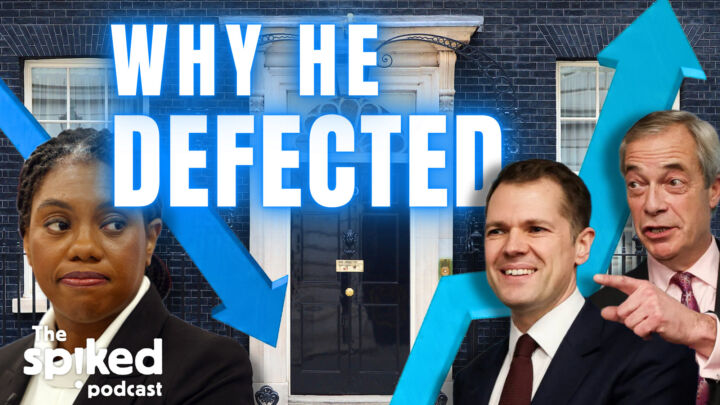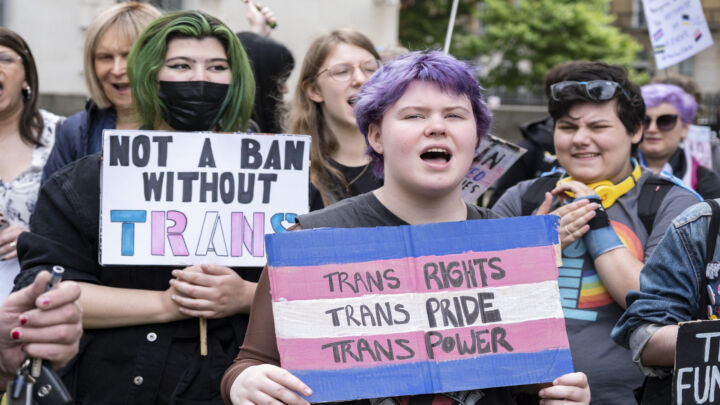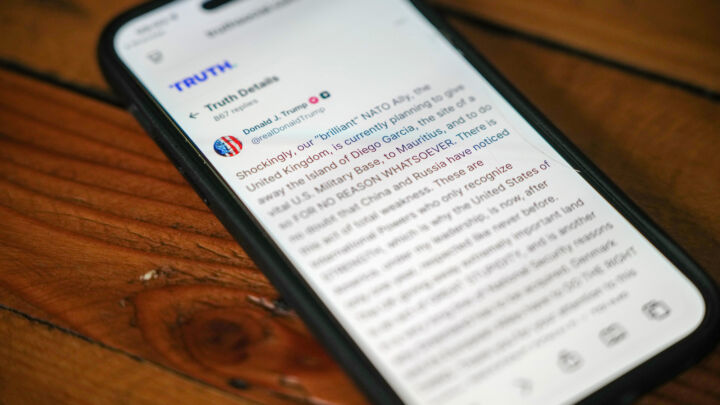Graham Linehan must be the last ever thoughtcriminal
The battle against Britain’s draconian speech laws is far from over.

Want unlimited, ad-free access? Become a spiked supporter.
You could hardly have asked for a starker illustration of Britain’s free-speech crisis than the arrest of Graham Linehan at Heathrow Airport last month. Five armed police officers apprehended the comedy writer as soon as he landed on British soil. The Father Ted co-creator was then placed in handcuffs, held in a police cell for 12 hours and interrogated over three posts on X that made fun of trans activists.
Now, seven weeks later, the Metropolitan Police have finally confirmed they will take no further action over the tweets. Although Linehan was initially arrested under the Public Order Act on suspicion of inciting violence, the police subsequently treated the tweets as a potential ‘non-crime hate incident’ (NCHI), before abandoning the case entirely.
This is undoubtedly good news for Linehan, whose only ‘crime’ was to have expressed himself with humour – which comedy writers are wont to do from time to time. In one of the offending posts on X, he described an image of a trans-activist march as a ‘photo you can smell’. In a follow-up tweet, he wrote: ‘I hate them. Misogynists and homophobes. Fuck em.’ In another, he joked: ‘If a trans-identified male is in a female-only space he is committing a violent, abusive act. Make a scene, call the cops and if all else fails, punch him in the balls.’ It beggars belief that the police ever considered these posts to be a potential hate crime.
Surprisingly, the Met also announced they would stop investigating such NCHIs entirely – partly due to ‘public concern’ about Linehan’s treatment, and to allow police to ‘focus on matters that meet the threshold for criminal investigations’. On the surface, this announcement sounds like a major win for free speech. The national – and indeed international – outcry over Linehan’s arrest seems to have chastened the UK’s largest police force. But we should be careful not to celebrate too soon.
The NCHI is a policing tool that allows officers to record acts or speech that, while not criminal, are ‘perceived by the victim or any other person to be motivated by hostility or prejudice’. This means that literally anything you do or say could be logged as hateful, as long as there is a snitch willing to report it and a police officer willing to record it. Dad jokes, playground insults and neighbourly disputes have all been treated as hate incidents in recent years. The Free Speech Union estimated last year that 65 people per day are recorded by police as having committed an NCHI. The Met’s new policy is unlikely to change this, as its announcement states explicitly that it will ‘continue to record’ these incidents, even if it wastes less time investigating them.
Arguably, it is the practice of recording of NCHIs that is most chilling. Just because certain speech doesn’t meet the criminal threshold, that doesn’t mean there aren’t consequences to having an NCHI against your name. If you’re accused of one of these ‘non-crimes’, you can still get a phone call or a knock on the door from the police. Or you may not be informed about it at all. As the perception of hate is what matters, you can’t defend yourself against an accusation in any case. While no one has ever been jailed or fined for committing a non-crime, NCHIs can appear on enhanced DBS checks, potentially jeopardising your career. This is a form of police-enforced cancel culture.
What’s more, the death of the non-crime hate incident has been announced many times before, but this has done nothing to deter Britain’s activist police forces from investigating and logging them. In 2020, a High Court judge condemned the recording of NCHIs, comparing the UK’s thoughtpolice to ‘the Cheka, Gestapo or Stasi’. This changed nothing. In 2021, the Court of Appeal ordered the College of Policing, the quango that trains police officers, to redraft its guidance on NCHIs to show greater deference to free speech. But the College of Policing dragged its feet. New guidance didn’t appear until two years later. Also in 2021, then Conservative home secretary Priti Patel instructed the police to wipe all NCHIs from the record. The order was disobeyed. Britain’s captured police forces believe they have the right – indeed, the duty – to restrict what Britons can and can’t say, and they are not going to let the law, the courts or elected politicians stand in the way of this.
Worse, the NCHI is neither the only nor even the most draconian tool at the thoughtpolice’s disposal. In England and Wales, 30 people are arrested every single day under the Communications Act and the Malicious Communications Act – just two of the myriad laws that criminalise so-called hate speech. The Public Order Act, the Racial and Religious Hatred Act and the Online Safety Act provide yet more opportunities for officers to feel the collars of wrongthinkers. Indeed, as childminder Lucy Connolly discovered amid last year’s Southport riots, sending an inflammatory tweet can not only lead to your arrest, but to imprisonment, too.
Graham Linehan’s reprieve is undoubtedly good news. But the battle against our Orwellian speech laws is far from over. No one should ever fear arrest for expressing an opinion or making a joke. Free speech will only be safe when there are no more thoughtcriminals.
Fraser Myers is deputy editor at spiked and host of the spiked podcast. Follow him on X: @FraserMyers.
£1 a month for 3 months
You’ve hit your monthly free article limit.
Support spiked and get unlimited access.
Support spiked – £1 a month for 3 months
spiked is funded by readers like you. Only 0.1% of regular readers currently support us. If just 1% did, we could grow our team and step up the fight for free speech and democracy.
Become a spiked supporter and enjoy unlimited, ad-free access, bonus content and exclusive events – while helping to keep independent journalism alive.
———————————————————————————————————————————–
Exclusive January offer: join today for £1 a month for 3 months. Then £5 a month, cancel anytime.
———————————————————————————————————————————–
Monthly support makes the biggest difference. Thank you.










Comments
Want to join the conversation?
Only spiked supporters and patrons, who donate regularly to us, can comment on our articles.